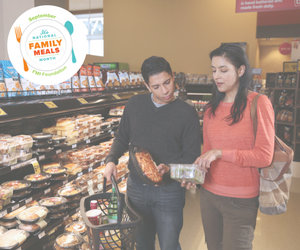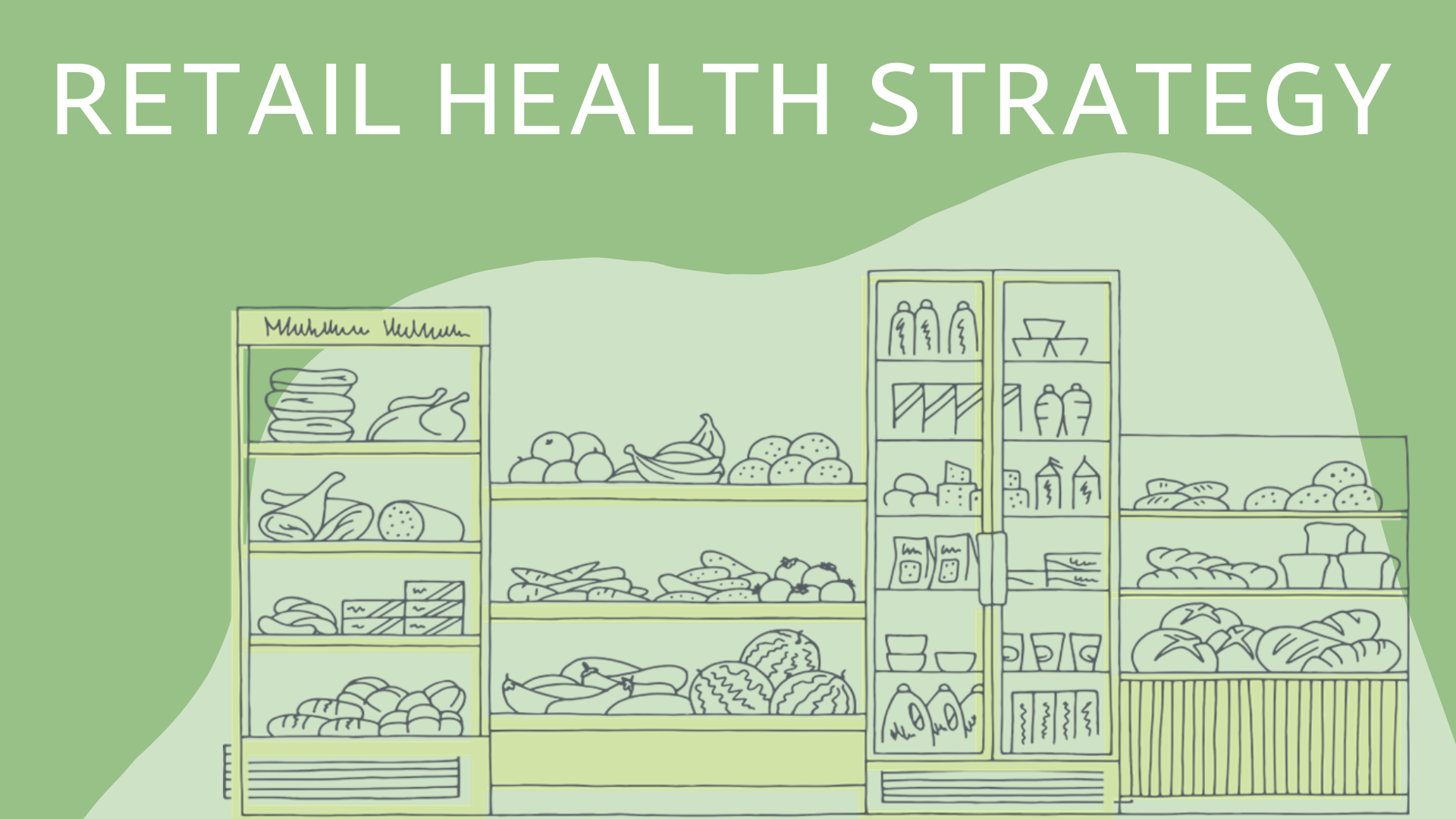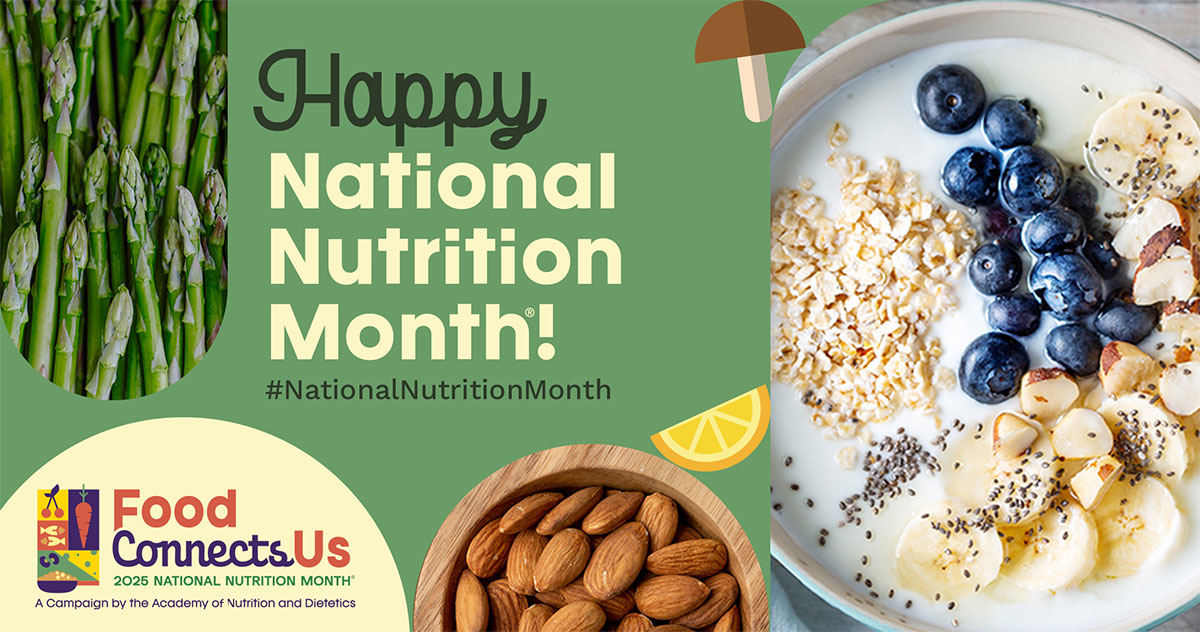By: Sue Borra, RD, Chief Health and Wellness Officer for FMI and Executive Director of the FMI Foundation
 A recent report prepared by the Hartman Group for the Food Marketing Institute (FMI) Foundation found that 41 percent of all meals eaten by American adults are eaten alone. That number is increasing and outpacing the growth of single-person households. While dinnertime reigns as the most commonly enjoyed “family meal” occasion, breakfast and lunch are an emerging battleground for shared mealtime market share. A key takeaway from the same report also cited that 88 percent of people surveyed believe that food eaten at home is healthier because they have more control over ingredients and portions when they prepare their own food.
A recent report prepared by the Hartman Group for the Food Marketing Institute (FMI) Foundation found that 41 percent of all meals eaten by American adults are eaten alone. That number is increasing and outpacing the growth of single-person households. While dinnertime reigns as the most commonly enjoyed “family meal” occasion, breakfast and lunch are an emerging battleground for shared mealtime market share. A key takeaway from the same report also cited that 88 percent of people surveyed believe that food eaten at home is healthier because they have more control over ingredients and portions when they prepare their own food.
With those statistics in mind, coupled with the data about the health and societal benefits of families eating together, the FMI Foundation reignited its National Family Meals Month™ campaign, which implored the food retailing industry to encourage families to eat one more meal together each week in September.
The Foundation is well positioned to fulfill its nutrition and health mission aligned with the launch of this campaign. The most recent FMI U.S. Grocery Shopper Trends study found that nearly half of Americans see their “primary food store” as a significant ally in their attempts to achieve their health and wellness goals. While their store ranks behind trusted resources such as their own family or doctor, the food retailer is far ahead of health insurance companies or restaurants. Related, as revealed in the 2016 Food Retailing Industry Speaks analysis, retailers see opportunities to grow their customer loyalty with 76 percent saying they are competing on strategies related to solutions for family meals and 74 percent saying they are implementing consumer wellness and family health programs.
In 2015, the first year of the campaign, nearly 40 percent of food retailers said they participated in the National Family Meals Month and at least 70 percent have stated they are making plans to do so this year[i].
The Foundation prepared its Best Practices and Excellence in National Family Meals Month™ Programing report with specific turnkey suggestions that any company can undertake to participate, but the initiative comes down to eight simple imperatives:
- Take advantage of the omnichannel meal solutions marketing strategies you are already implementing to promote the program.
- Build on what your company did for National Family Meals Month™ last year and use the momentum and feedback to do even more this year.
- Engage consumers through personal messaging. A study prepared for FMI by Nielsen found that 95 percent of people who knew about the campaign last year learned of it via social media or e-mail.
- Understand that, because each family is different, they will interpret the campaign differently and it is incumbent on you to suggest a variety of ways in which they can participate.
- At the same time, take note of the cultural makeup of the communities you serve and prepare collateral materials in the appropriate languages. The Nielsen study also found that multicultural consumers were twice as likely to participate in the campaign.
- Collaborate with other institutions in the community (i.e., suppliers, the media, health care facilities) to promote the idea that there are health and wellness benefits to families sharing one more meal each week.
- Use the same metrics you use in other parts of your business (including sales growth) to measure the impact your program is having.
- Finally, and perhaps most importantly, provide and display fresh, healthy choices to your shoppers, including prepared meals.
The health and societal benefits of families sharing one more meal each week are exponential and by participating in National Family Meals Month retailers can achieve the goal of being a trusted partner in health and wellness for the communities they serve. The campaign is only in its third year, so we’re merely starting a journey that we expect will create stronger trust between food retailers and their shoppers in the future.
Learn more: www.fmifamilymeals.com
[i]2017 Report on Retailer Contributions to Health and Wellness, Food Marketing Institute


 Industry Topics address your specific area of expertise with resources, reports, events and more.
Industry Topics address your specific area of expertise with resources, reports, events and more.
 Our Research covers consumer behavior and retail operation benchmarks so you can make informed business decisions.
Our Research covers consumer behavior and retail operation benchmarks so you can make informed business decisions.
 Events and Education including online and in-person help you advance your food retail career.
Events and Education including online and in-person help you advance your food retail career.
 Food Safety training, resources and guidance that help you create a company food safety culture.
Food Safety training, resources and guidance that help you create a company food safety culture.
 Government Affairs work — federal and state — on the latest food industry policy, regulatory and legislative issues.
Government Affairs work — federal and state — on the latest food industry policy, regulatory and legislative issues.
 Get Involved. From industry awards to newsletters and committees, these resources help you take advantage of your membership.
Get Involved. From industry awards to newsletters and committees, these resources help you take advantage of your membership.
 Best practices, guidance documents, infographics, signage and more for the food industry on the COVID-19 pandemic.
Best practices, guidance documents, infographics, signage and more for the food industry on the COVID-19 pandemic.
